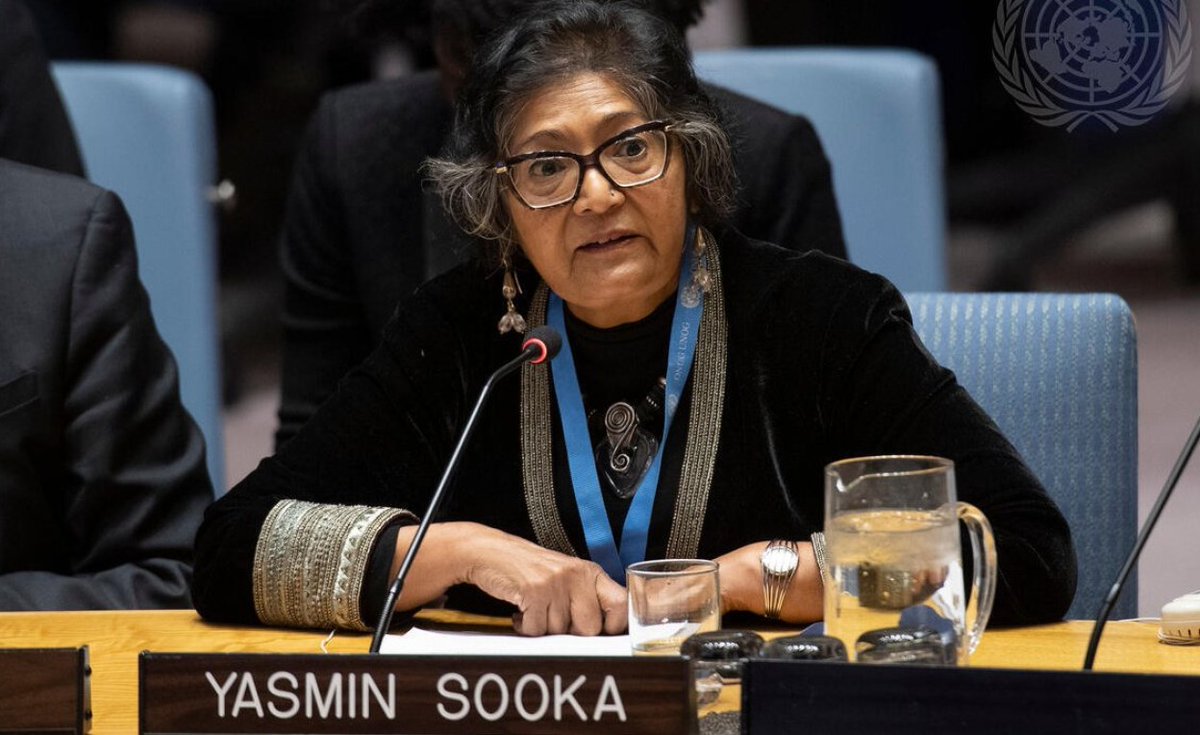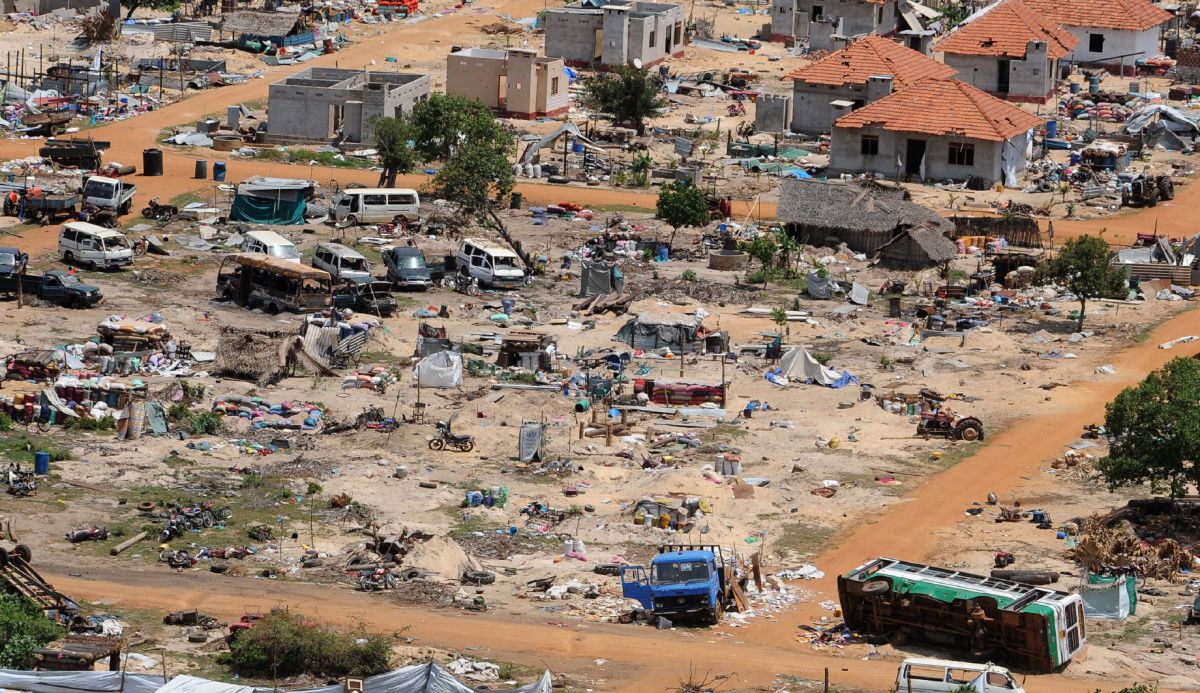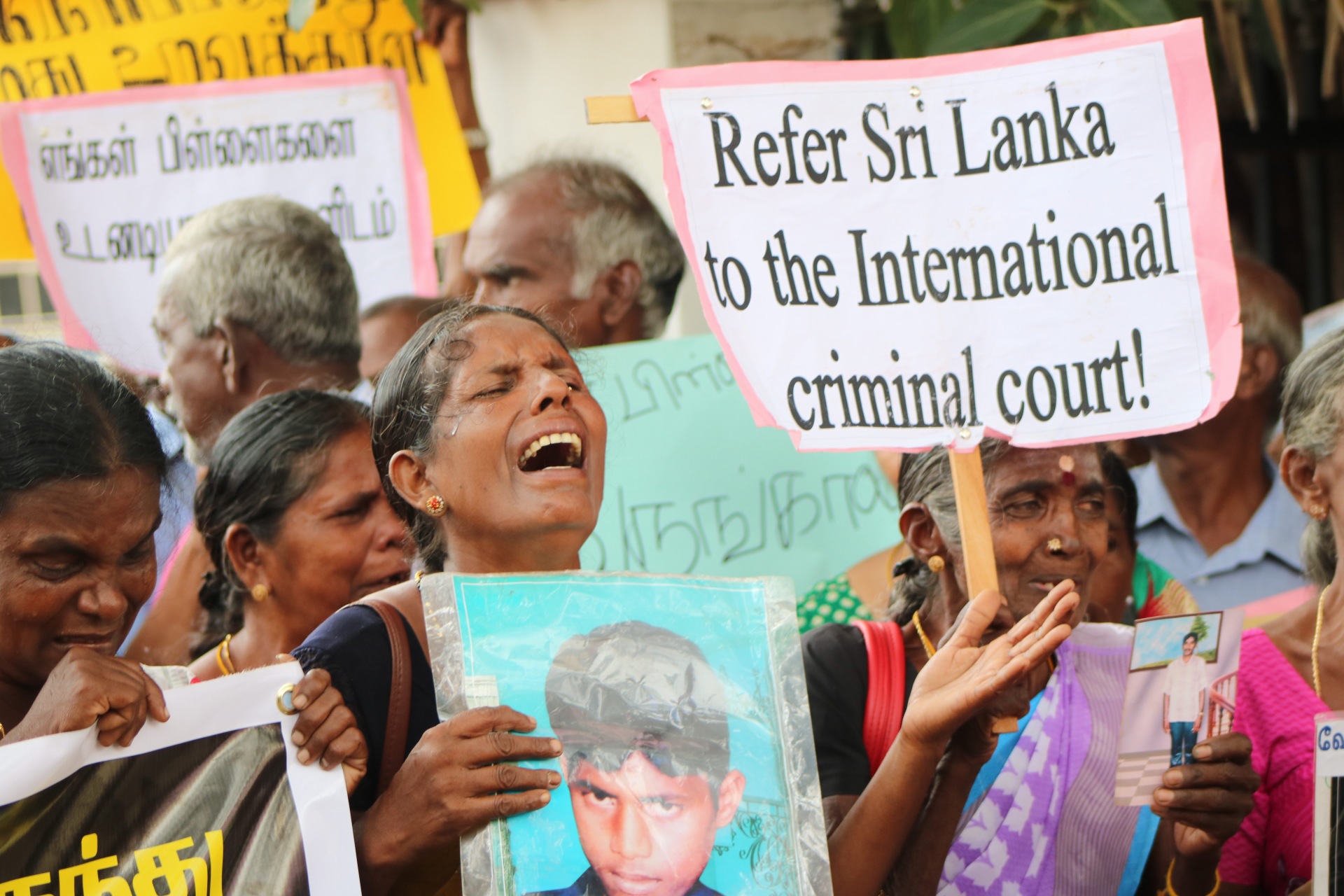
Earlier this month, the International Truth and Justice Project (ITJP) submitted more than 60 sanctions requests targeting Sri Lankan officials, security personnel and former Indian Peacekeeping Force (IPKF) officers for their roles in human rights violations committed during and after Sri Lanka’s armed conflict.
In an interview with the Tamil Guardian, Yasmin Sooka, Executive Director of ITJP and human rights lawyer, outlined her hopes for sanction on Sri Lanka, discussed how the requests came about, and how she supports a referral to the International Criminal Court.
Speaking a few days after the sanction requests submissions to governments in the US, UK, Canada, EU and Australia, Yasmin Sooka said: “The ITJP has been documenting the gross human rights violations that took place during the war and in the aftermath in Sri Lanka and have acquired one of the largest archives of war crimes and crimes against humanity in the country.
“With such work, one of the challenges has been how you actually use such documentation to build accountability and justice for the victims, and look at alternative forms of accountability. One area for us is submitting sanctions under the Global Magnitsky sanctions.”
‘Magnitsky’ sanctions, applicable in the US, UK, Europe, Canada and Australia, refers to the implementation of sanctions on foreign nationals responsible for human rights violations or acts of significant corruption.
They were established after the death of Sergei Magnitsky in 2007, a Russian tax lawyer who uncovered a $230 million fraud by tax officials in the Russian Interior Ministry.
The US government has a sanctions authority - referred to as Section 7031(c) - to impose visa restrictions against such foreign officials, and an NGO or other member can submit sanction recommendations to trigger a mandatory review under this authority.
If sanctioned, neither the particular person nor family could travel to the country in which they are sanctioned, and any property or assets in that country are also detached.
Sooka highlighted the Mullivakkal massacre in 2009 as a key reason for accountability.
“I’ve dealt with many situations of conflict in many different countries in the world, but what is really harrowing about the conflict in Sri Lanka is the way in which civilians were targeted by the Sri Lankan security forces towards the end of the war.”
“You had over 300,000 people living side by side seeking shelter in zones the size of Hyde Park, bombed and targeted by Sri Lankan forces who denied these numbers, despite warnings from doctors and humanitarian workers in the zones at the time.
“Civilians were in desperate need of medical supplies, doctors were trying to use any type of implements to assist medically, and of course there was the issue of starvation - it very very much reminds me of Gaza when you see the same things that happened in Sri Lanka.”

Read more: 15 years today - A massacre in Mullivaikkal
Sooka warned that ongoing human rights violations were shown through the ITJP’s dossier of evidence: “there are statements from those who left Sri Lanka this year who were the subject of ongoing violations including torture and sexual violence. Members of the Tamil community who handed over their loved ones to the forces at the end of the war and have not had sight of them since continue to be persecuted just for even asking questions about what has happened to their loved ones.”
Sri Lanka was found to have the second highest number of enforced disappearances according to a 2022 Amnesty International report and Sooka emphasised that such stories ‘placed an obligation on the international community to hold Sri Lanka accountable.’
When asked about the UK’s resistance to sanctioning and referring Sri Lanka to the International Court, Sooka said she was ‘disappointed’.
Previously the ITJP had submitted lengthy sanctions dossiers on General Shavendra Silva in 2021, and General Jagath Jayasuria in 2022, who was in charge of the notorious Joseph camp. Whilst Silva was publicly designated in the US under 7031c of the Appropriations Act for his role in gross human rights violations, the UK has never sanctioned either of the two men.
Sooka said: “We find it a real challenge to understand why the UK government has been so resistant to sanctioning - the hope is this year the publicity around this question of sanctions request will spur the UK government to act and do what is their responsibility.”
When asked whether she would support economic sanctions against Sri Lanka as a whole, Sooka admitted this was trickier to answer with the advent of a new regime and a possibility that they could behave in a ‘different manner’.
“I would argue it would be better to have economic sanctions against individuals involved or implicated in corruption but I think that question of overall economic sanctions itself should be a call made by the victims of the violations themselves.”

Demonstration by Tamil families in 2020.
When asked if she would support a referral to the International Criminal Court, Sooka said “absolutely”.
“The ITJP has always been considering what is a jurisdictional basis to bring such a case, but the difficulty is that Sri Lanka is not a signatory. But if countries passed a resolution in the security council and signalled that there would be an ICC referral and investigation into what happened at the end of the war and in the aftermath in Sri Lanka, that is something that one could pressure the UK to put in a referral as well.”
Sooka is clear that the Tamil people can support the submissions by the ITJP, particularly amid calls to renew the mandate of the Office of the UN High Commissioner for Human Rights (OHCHR) and its Sri Lanka Accountability Project.
Sooka said: “Write to the various governments, particularly the UK which is the leader of the core group on the Human Rights Council and will in fact rally support for an investigation.
“By asking them to act on the submissions - these are tangible steps that the Tamil community can really support.”
